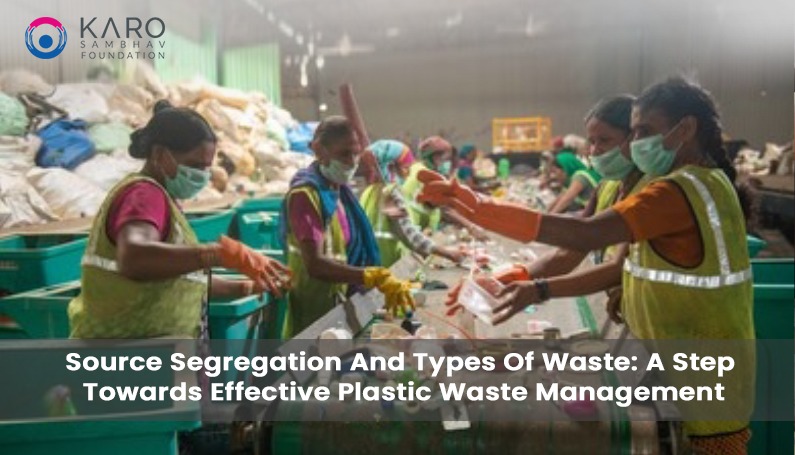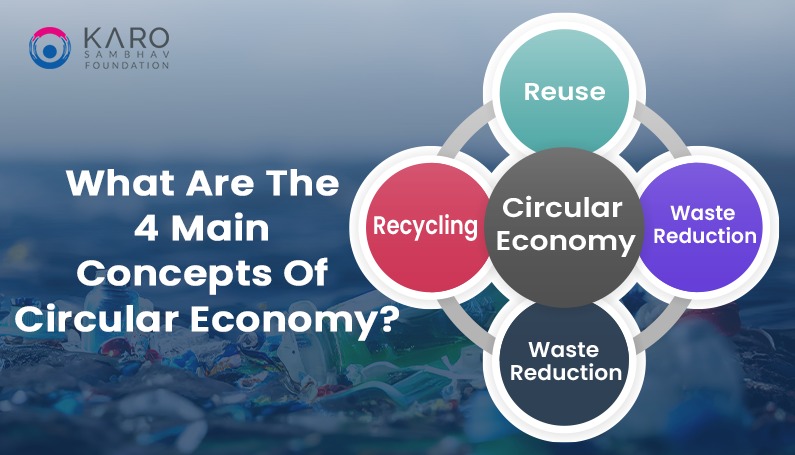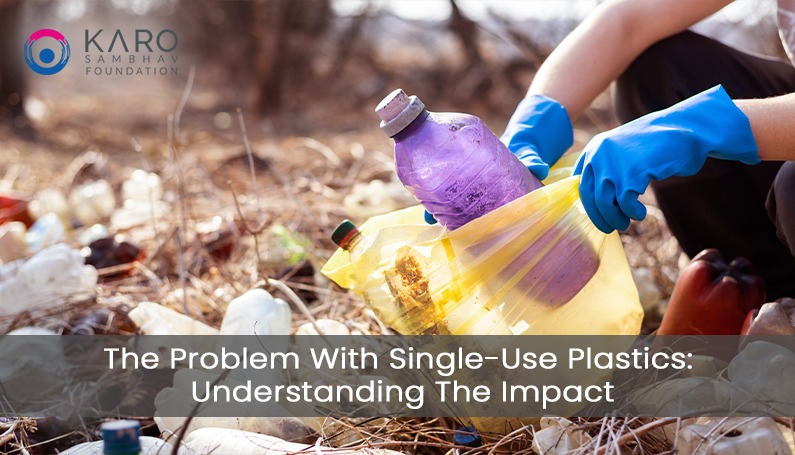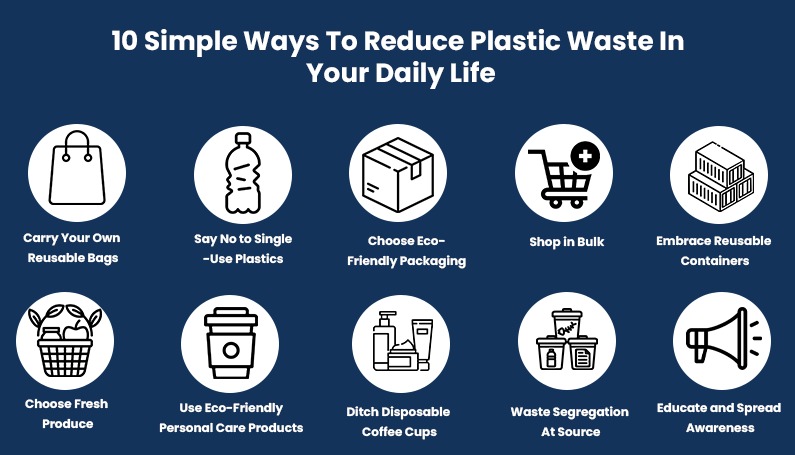July 14, 2023
What Are The 4 Main Concepts Of Circular Economy?Source Segregation And Types Of Waste: A Step Towards Effective Plastic Waste Management
- July 03, 2023
- /
- By Karo Sambhav Foundation
- Plastic Waste Management
- Plastic Waste in India
- Plastic Waste Management in India
- Source Segregation Waste

Proper waste management is crucial for preserving the cleanliness and sustainability of our environment. With the increasing concern surrounding plastic waste on a global scale, immediate action and effective solutions are imperative. Leading the charge in India are plastic waste management companies like Karo Sambhav Foundation (KSF), who are actively engaged in promoting responsible waste disposal practices and driving recycling initiatives. This blog aims to emphasise the significance of source segregation in waste management while focusing on the various types of waste, with a particular emphasis on plastic waste. By shedding light on KSF’s efforts and our contributions to waste management in India, we hope to raise awareness about the importance of responsible waste management practices and the need for collaboration in addressing the plastic waste crisis.
The Significance of Source Segregation
Source segregation refers to the process of sorting waste at its origin based on its nature and composition. It involves categorising waste into different streams, such as recyclable, organic, hazardous, and non-recyclable waste. Source segregation is a crucial step towards effective waste management, as it allows for proper disposal, recycling, and treatment of different types of waste. By segregating waste at the source, individuals, communities, and industries can contribute to reducing the burden on landfills, promoting recycling, and minimising the environmental impact of waste. Now that you know the significance of source segregation, it is important to understand the types of waste. The various types of waste are as follows:
Plastic Waste
Plastic waste is one of the most pressing environmental challenges we face today. It includes various types of plastic materials, such as bottles, bags, packaging, and single-use items. Plastic waste management organisations in India, like KSF, are dedicated to creating collection mechanisms to ensure the recycling of plastic waste. By creating forward linkages to authorised and responsible recyclers, they convert plastic waste into valuable resources, promoting a circular economy and reducing the need for producing new virgin material.
Organic Waste
Organic waste comprises biodegradable materials such as food scraps, garden waste, and agricultural residues. Effective management of organic waste is crucial as it can be converted into manure and fertilizer through the process of composting. Composting not only reduces the volume of waste sent to landfills but also produces nutrient-rich manure that can be used to improve soil health and promote sustainable agriculture.
Hazardous Waste
Hazardous waste includes materials that pose a risk to human health and the environment due to their toxic, flammable, or corrosive nature. Examples of hazardous waste include chemicals, bio-medical waste, waste from industrial processes, etc. Proper segregation and disposal of hazardous waste are essential to prevent contamination and ensure the safety of both humans and the environment. Plastic waste management organizations like KSF adhere to strict guidelines for the safe handling and disposal of hazardous waste.
Recyclable Waste
Recyclable waste consists of materials that can be processed and reused as secondary raw material to manufacture new products. This category includes paper, cardboard, glass, metal, and certain types of plastics. Recycling reduces the need for raw material extraction, saves energy, and reduces greenhouse gas emissions. Plastic waste management organisations in India, including KSF, actively promote the recycling of plastic waste by establishing collection centres, facilitating sorting processes, and collaborating with stakeholders across the value chain.
Karo Sambhav Foundation's Initiatives
Karo Sambhav Foundation (KSF) is committed to creating a sustainable waste management ecosystem in India. They work towards spreading awareness about the importance of source segregation and engaging individuals as well as communities in responsible waste management practices. KSF's initiatives focus on building robust infrastructure, promoting recycling, and collaborating with stakeholders to establish a circular economy for plastic waste.
Through their extensive network of collection centres and recycling partners, KSF ensures that plastic waste is collected, sorted, and recycled in an environmentally friendly manner. Their efforts contribute to reducing the environmental impact of plastic waste while generating economic opportunities for waste pickers and recyclers.
Conclusion
Source segregation is a crucial step in effective waste management, and understanding the different types of waste is essential for implementing appropriate disposal and recycling practices. Plastic waste, in particular, poses a significant challenge, but organisations like Karo Sambhav Foundation (KSF) are leading the way in promoting responsible waste management and recycling initiatives. By actively participating in source segregation and supporting plastic waste management organisations in India, we can all contribute to a cleaner and more sustainable future. Let us embrace source segregation as a way of life and work together towards a world with reduced plastic waste and a healthier environment for generations to come.
Recent Posts



